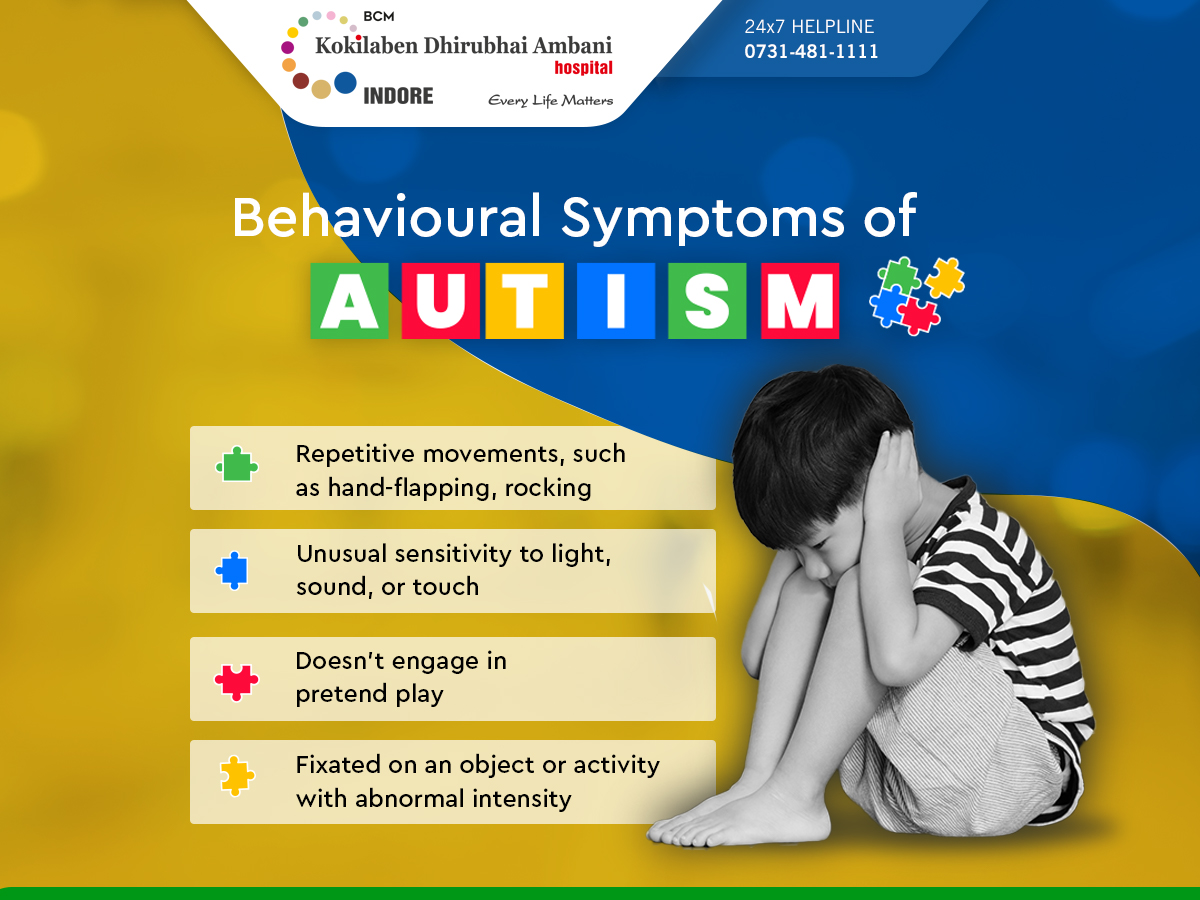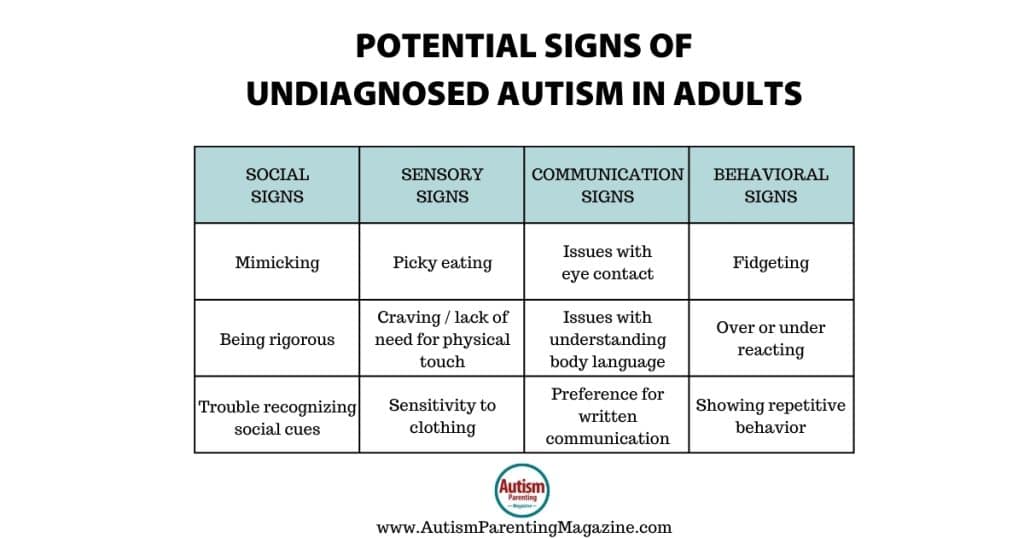The ultimate guide to finding Autism Spectrum Therapies
The ultimate guide to finding Autism Spectrum Therapies
Blog Article
Recognizing the Impact of Behavioral Autism on Every Day Life and Social Interactions
You may not realize just how deeply behavior autism influences every day life and social communications. Individuals on the range typically browse a globe loaded with interaction hurdles and sensory overload. These obstacles can lead to disappointment and isolation, influencing their relationships and overall well-being. Recognizing these subtleties is essential for promoting helpful atmospheres. What approaches can we carry out to develop even more meaningful links and inclusive spaces? The answers may surprise you.
Defining Behavior Autism and Its Characteristics
Behavioral autism, frequently referred to as autism spectrum disorder (ASD), includes a series of problems identified by challenges in social interaction, interaction, and repetitive actions. You could see that people with ASD usually struggle to translate social cues, which can cause misconceptions in discussions. They might find it hard to establish eye call or participate in tiny talk, making social circumstances feel frustrating.
Communication problems can materialize in different methods, from delayed speech development to a preference for using less words. Repeated actions, such as hand-flapping or shaking, can act as coping systems to handle stress or sensory overload. These qualities can greatly affect every day life, making it crucial for you to understand and support those with ASD. By identifying these traits, you can promote a setting that promotes acceptance and encourages reliable communication, helping people with autism flourish in their day-to-day interactions.
The Spectrum of Autism: Recognizing Variability in Actions
Autism range problem (ASD) isn't a one-size-fits-all medical diagnosis; it varies extensively amongst individuals. You might encounter people that are highly verbal and involve quickly in discussions, while others might favor solitary tasks or communicate non-verbally.
Moreover, the way people with ASD respond to sensory input can vary considerably; some could be bewildered by brilliant lights or loud sounds, whereas others flourish in boosting atmospheres. The spectrum likewise consists of distinctions in social communications; some people might struggle to analyze social hints, while others navigate social settings with relative convenience. Recognizing this variability is important, as it assists you value each person's distinct experience and tailor assistance to their specific requirements, cultivating a much more inclusive environment for every person.
Communication Difficulties Dealt With by People With Autism
When you connect with people on the autism spectrum, you may discover their distinct interaction obstacles. They commonly face difficulties with both nonverbal and verbal hints, which can influence their social interactions. Recognizing these barriers is crucial for fostering better connections and assistance.

Verbal Interaction Troubles
Several people on the autism range experience spoken interaction troubles that can considerably influence their daily interactions. You may locate it testing to share your ideas, feelings, or requires clearly. This can bring about aggravation for both you and those around you, as misunderstandings take place. You might battle with starting conversations, preserving a topic, or recognizing nuances in speech. Usually, you might like utilizing easy language or repeated expressions, which can limit your capability to take part in much deeper conversations. Your tone, rate, or quantity might not straighten with social expectations, creating others to misunderstand your purposes. Acknowledging these challenges can assist you and your support network establish approaches to improve interaction and foster much better links with others in your life.
Nonverbal Communication Barriers
Verbal interaction isn't the only difficulty individuals on the autism spectrum face; nonverbal communication barriers can be equally as substantial. You could discover it tough to translate body movement, facial expressions, and eye get in touch with, which are vital for reliable communication. These obstacles can cause misunderstandings or misinterpretations of social signs, making communications feel overwhelming or complicated. You might have a hard time to reveal your own feelings through nonverbal means, leaving others uncertain of your intents or sensations. This disconnect can produce sensations of isolation and disappointment. Acknowledging these obstacles is essential for cultivating understanding and compassion in your interactions. By attending to nonverbal communication, you can discover strategies to enhance your social experiences and enhance your total quality of life.
Social Communication Impacts
Social interactions can frequently really feel overwhelming due to the unique communication difficulties faced by people with autism. Identifying these obstacles can help you find strategies to boost communication, such as exercising social abilities in safe setups or making use of aesthetic aids. Understanding your requirements enables you to browse social interactions with higher confidence and simplicity.
Social Communication and Connection Building in Autism
While structure partnerships can be testing for people with autism, understanding their special perspectives and communication designs can cultivate meaningful connections. You could see that many individuals on the range choose direct interaction and may fight with social cues or little talk. By being simple in your interactions, you can aid create an atmosphere where they feel comfy.
Put in the time to listen and observe just how they share themselves. This insight can assist you in guiding conversations more properly. Participating in shared passions can likewise offer as a bridge to much deeper links. Whether it's a hobby, a preferred program, or a common interest, these usual strings can open doors to friendship.
Daily Life Regimen: Browsing Approaches and difficulties
Maneuvering life regimens can be specifically testing for people with autism, particularly when unforeseen changes happen. You could locate comfort in having a structured schedule, as it aids you anticipate what's following. When disruptions happen, it's regular to really feel overloaded or nervous. To navigate these challenges, take into consideration executing aesthetic schedules or lists. These tools can provide quality and reassurance.
Developing a regimen that includes sensory breaks can also be advantageous. This assists produce an understanding setting.
Last but not least, method mindfulness strategies to handle stress and anxiety and stress and anxiety. Easy breathing exercises or grounding techniques can make a significant distinction. By incorporating these methods, check here you can enhance your daily regimen and decrease interruptions, making life feel much more manageable.
Strengths and Capabilities of Individuals on the Autism Spectrum
Comprehending everyday life routines is simply one element here of the autism experience. Numerous individuals on the autism range possess impressive staminas and abilities that establish them apart. You might locate that your interest to information is phenomenal, allowing you to master jobs that require accuracy and focus. Your ability to believe outside package can result in ingenious solutions in various situations.
Moreover, your memory abilities often radiate, especially in areas of passion. Autism Behavioral Therapy. This knack for maintaining information can make you a beneficial resource in fields like art, innovation, or scientific research. You might additionally display strong visual thinking, enabling you to imagine intricate principles and fix troubles artistically
Furthermore, your special viewpoint on the globe can cultivate compassion and understanding in others, enhancing social communications. Accepting these toughness not only boosts your confidence but likewise assists others appreciate the diverse abilities you offer the table.
Developing Inclusive Atmospheres for Individuals With Autism
Producing comprehensive settings for people with autism starts with developing sensory-friendly spaces that satisfy their special demands. You can likewise cultivate chances for social interaction, aiding to construct relationships and links. By making these changes, you'll add to a much more welcoming atmosphere for every person.
Creating Sensory-Friendly Spaces
While developing sensory-friendly rooms, it's vital to show on the one-of-a-kind needs of individuals with autism. Begin by picking calming colors and soft lighting to produce a soothing atmosphere. When overwhelmed, incorporate quiet areas where individuals can pull back and recharge. You'll desire to reduce loud sounds and distractions, utilizing soundproof products or white sound machines to help website preserve tranquility. Think about responsive aspects like soft textiles or fidget-friendly things that can offer convenience. Ascertain that areas are versatile, permitting easy rearrangement to accommodate various activities. Include aesthetic routines or clear signage to assist people browse the space confidently. By attentively integrating these components, you can produce a welcoming atmosphere that sustains sensory requirements and promotes general wellness.
Promoting Social Interaction Opportunities
Designing sensory-friendly rooms not just addresses specific convenience yet likewise sets the phase for significant social interactions among individuals with autism. Urge peer mentoring, coupling people with autism with helpful peers who can assist them through social circumstances. By applying these methods, you can boost social possibilities, assisting people with autism construct relationships and reinforce their social abilities in a safe, welcoming atmosphere.

Often Asked Questions
How Can Friends Assistance Someone With Behavioral Autism?
You can sustain a friend with behavioral autism by holding your horses, paying attention actively, and valuing their borders. Participate in activities they take pleasure in, connect freely, and develop a comfortable atmosphere where they really feel valued and comprehended.
What Resources Are Readily Available for Parents of Kid With Autism?
You can explore different sources for parents of kids with autism, including support system, educational web sites, and regional social work. Getting in touch with other moms and dads can also supply valuable insights and shared experiences to aid browse challenges.
Can Behavioral Autism Change In Time?

Yes, behavior autism can alter gradually. You could see changes in interaction, social abilities, and habits as your child expands. Early treatment and assistance usually play essential duties in these developmental modifications.
Just How Do Sensory Sensitivities Impact Daily Life?
Sensory sensitivities can make everyday experiences overwhelming. You could battle with brilliant lights or loud sounds, causing anxiety or evasion. Discovering settings that fit your demands can substantially enhance your convenience and general every day life.
What Are Typical Misconceptions About Behavioral Autism?
You might believe behavioral autism only affects interaction abilities, yet it's even more facility. Several think individuals do not have empathy or intelligence, which isn't real. Recognizing these misconceptions aids foster approval and assistance for those on the range.
Behavioral autism, frequently referred to as autism range problem (ASD), includes a variety of problems characterized by difficulties in social communication, communication, and repetitive behaviors.Social interactions can frequently really feel frustrating due to the distinct interaction challenges faced by people with autism.Creating sensory-friendly spaces not just addresses specific comfort however also sets the stage for significant social interactions among people with autism. Urge peer mentoring, combining individuals with autism with supportive peers that can direct them through social circumstances. By carrying out these approaches, you can improve social opportunities, assisting people with autism develop friendships and strengthen their social abilities in a risk-free, welcoming atmosphere.
Report this page